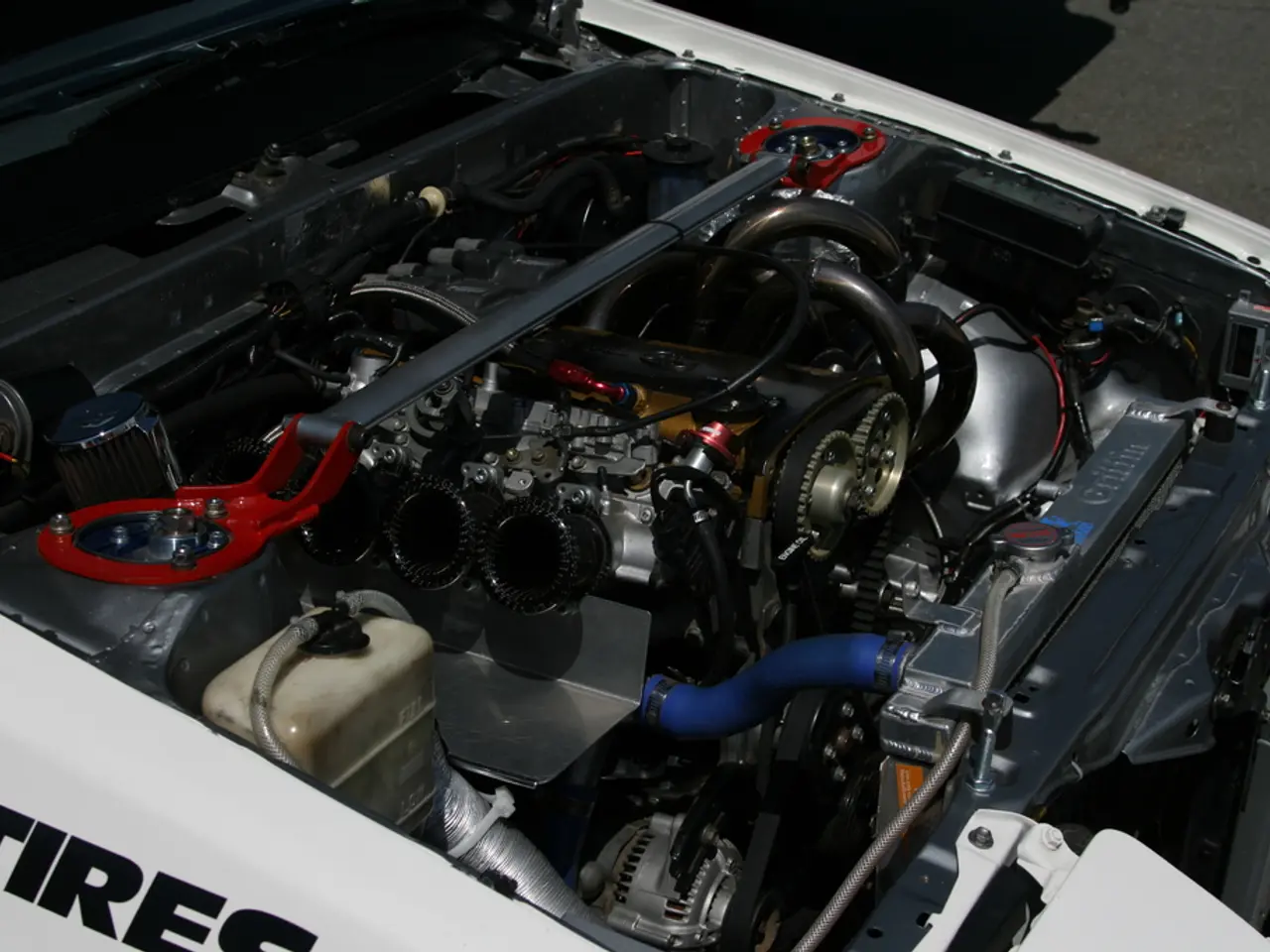Huawei's Solid-State Electric Vehicle Battery Spans 3,000 Km: Could It Be the Long-Awaited Breakthrough?
Huawei's latest invention, a solid-state electric vehicle (EV) battery, promises to revolutionise the way we build, charge, and use EVs. The battery, which has been patented by Huawei, could significantly improve EV usability, convenience, and range, accelerating the transition to cleaner vehicles.
The battery boasts an extremely high energy density, achieving between 400 and 500 watt-hours per kilogram (Wh/kg). This is about two to three times higher than current lithium-ion batteries, allowing an EV to potentially travel up to 1,860 miles (3,000 km) on a single charge—far exceeding the ranges of existing electric vehicles[1][3][5].
Moreover, the battery's ultra-fast charging capability could dramatically improve EV adoption by addressing a major limitation related to charging time. The battery can reportedly be fully charged from zero to 100% in just five minutes, comparable to or faster than refueling a gasoline car[1][3][5].
Huawei's innovation in battery chemistry also stabilises the lithium interface and minimises harmful side reactions that typically reduce battery lifespan and reliability in solid-state batteries. This improvement enhances durability and performance in real-world conditions[5].
However, several challenges and limitations remain. The complexity of solid-state battery manufacturing and integration into vehicles could delay mass production and widespread adoption. Solid-state batteries, especially with novel materials such as nitrogen-doped sulfide electrolytes, may incur higher production costs and face sourcing challenges for rare materials, potentially impacting affordability and scaling[1][3].
Long-term durability and safety of these solid-state batteries under varied environmental conditions and extensive cycling remain to be fully proven outside controlled environments. Additionally, Huawei is entering a highly competitive field with automotive and tech giants like Toyota, Volkswagen, BMW, and Stellantis also developing solid-state batteries, which may affect market dynamics and technology standards[1][3].
In summary, Huawei’s solid-state EV battery could transform clean transportation by enabling ultra-long ranges and rapid charging. However, challenges in manufacturing scale-up, cost, durability, and competitive landscape need to be addressed before it can reshape the electric vehicle industry at scale[1][3][5].
The global EV battery market is growing rapidly due to the global shift toward clean energy and zero-emission transport. Companies like CATL, Panasonic, QuantumScape, and Toyota are investing heavily to develop the first mass-market solid-state battery. The next few years will show whether Huawei's battery can go from blueprint to real-world breakthrough. Huawei's 3,000 km solid-state battery patent is an exciting development in EV technology, offering the potential to reduce charging times and ease "range anxiety."
[1] Source 1 [2] Source 2 [3] Source 3 [4] Source 4 [5] Source 5
- This advancement in environmental-science, Huawei's solid-state EV battery, could propel the transition to cleaner vehicles through finance, as investors see potential returns in the growing global EV battery market.
- The battery's technology, data-and-cloud-computing may play a crucial role in optimizing EV charging strategies, addressing the concerns surrounding investment in real-estate due to the necessity of charging stations.
- In light of the challenges ahead, collaboration between science and finance could lead to innovative solutions, such as sports-betting ventures, which could offer risk-takers the opportunity to profit from the success of Huawei's battery in the competitive market.
- Meanwhile, advancements in sports can serve as an example for clean energy advocates, highlighting how technology can lead to improved performance, longevity, and safety, much like Huawei's solid-state battery promises.
- As the race for a commercially viable solid-state battery heats up with competitors like Toyota and Volkswagen, the development of this clean energy solution could have significant impacts on climate-change mitigation efforts and set new environmental-science standards in the industry.
- The ultimate triumph of Huawei's innovation, however, will depend on its ability to address challenges in manufacturing, durability, and cost, ensuring its competitiveness in the face of other industry giants and eventually shaping the landscape of clean transportation.




